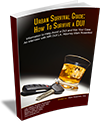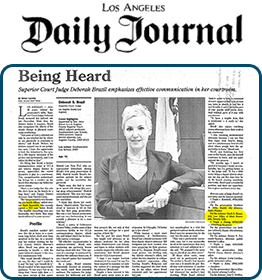In order to administer a breath test in compliance with Title 17, there would need to be a minimum of a 15-minute observation period where the person did not eat, drink, smoke, or put anything in their mouth, and in which there was no burping or belching. This would be the minimum period according to state law.
Why Is the Observation Period So Important?
The observation, or depravation period when the person did not eat, drink or burp, is very important because one of the greatest risks in breath testing would be the introduction of error into the breath test from contamination, which might happen from a foreign substance in the mouth, whether that was alcohol for which the person was being tested, or something else.
The person would need to have nothing in their mouth in order to get a valid test. Food could also hold alcohol and the person’s teeth or gums themselves could trap alcohol. Any sort of braces, retainer, or dental work could cause problems with breath testing and anytime the person burped or regurgitated, it would open up the mouth or a cavity to a higher percentage of alcohol content than what the machine would be looking for. In theory, the machine would be looking for air from the lungs and not air or alcohol in the mouth.
Do Police Officers Typically Abide by the Rules and Follow the Observation Period?
Certain procedures are in place in order to have a properly administered breath test and police officers often do follow their training, although many times they do not. It would vary from police officer to police officer.
Some police officers who take their occupation very seriously do a very good job and follow all the proper procedures and protocols when administering a breath test, whereas other police officers are more interested in the bigger picture. Some may not comply with the proper observation period and they may not follow the safety checklist. As a result, the results of chemical tests would often not be as accurate or as reliable as they should be.
How Would Hiccups, Vomit, or Acid Reflux Impact the Breathalyzer Test?
Anything the person introduced into their mouth, whether it was through a burp, belch, regurgitation, drinking or smoking, would introduce potential contaminants and invalidate a breath test. At that point the officer would need to start a new 15-minute observation period, and they would need to allow the person to rinse their mouth out with water and then start the observation period over again.
What Type of Machine Errors Could Cause an Inaccurate Breath Test Reading?
Many different machine errors could cause problems. The machine or the instrument used to test someone’s breath would just be a computer with some analyzers connected to it, and just like any computer, it could break down over time. Like any equipment, it could get worn out. There might also be cross-contamination from the environment around the machine, the breath testing room may have contaminants in it or the machine itself may have a problem with alcohol inside itself.
Many breath testing machines have stimulators that contain either an alcohol water stimulation or a gas stimulator that could cross over or leak over and cause contamination. The machines are also subject to errors because of radio frequencies from cellphones, walkie-talkies and other equipment in the police station.
The equipment and the sample chamber would need to be at a certain temperature, because variations in these temperatures could create problems with the instruments. The instruments could get clogged, dirty, bumped or dropped, and their internal standards could get damaged. A lot of things could happen to a breath testing instrument that could happen to any machine. Eventually over time the breath testing machines wear out just like anything else, be it a car, an X-ray machine or a cell phone.
For more information on Observation Period for Breath Test, a free initial consultation is your next best step. Get the information and legal answers you’re seeking by calling (310) 424-3145 today.






 Personal Attention
Personal Attention Every criminal case is unique and no attorney can guarantee the outcome of a case. The information on this site is legal advertising and for general information only. Using this site, requesting books, information, consultations or communicating with Attorney Rosenfeld through its site does not form an attorney/client relationship.
Every criminal case is unique and no attorney can guarantee the outcome of a case. The information on this site is legal advertising and for general information only. Using this site, requesting books, information, consultations or communicating with Attorney Rosenfeld through its site does not form an attorney/client relationship.








